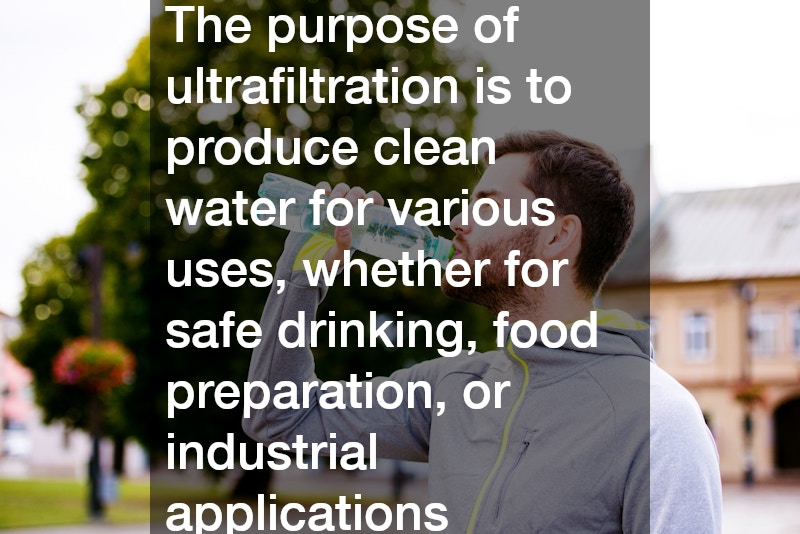An ultrafiltration system is designed to provide highly purified water by removing particles, bacteria, and other contaminants through a specialized membrane. Unlike other filtration methods, ultrafiltration uses a semi-permeable membrane with very fine pores, typically around 0.01 microns in size. This pore size is effective for trapping even tiny particles, making ultrafiltration ideal for residential, commercial, and industrial water treatment.
The purpose of ultrafiltration is to produce clean water for various uses, whether for safe drinking, food preparation, or industrial applications. It is particularly valuable in areas where water sources are compromised by contaminants that are difficult to remove with standard filtration. Unlike traditional filters that primarily block larger particles, ultrafiltration targets finer impurities, including suspended solids, bacteria, and viruses, ensuring a higher quality of water output.

The process is relatively straightforward: water is pushed through the ultrafiltration membrane under pressure. As water molecules and dissolved minerals pass through, unwanted contaminants are left behind and flushed away. This method is beneficial because it doesn’t require any chemical additives, making it a safer, eco-friendly solution.
Ultrafiltration systems are also efficient in terms of maintenance, as they generally require only routine membrane cleaning or replacement. For households or businesses focused on achieving cleaner, safer water, an ultrafiltration system offers a reliable, effective solution to meet stringent water quality needs.




